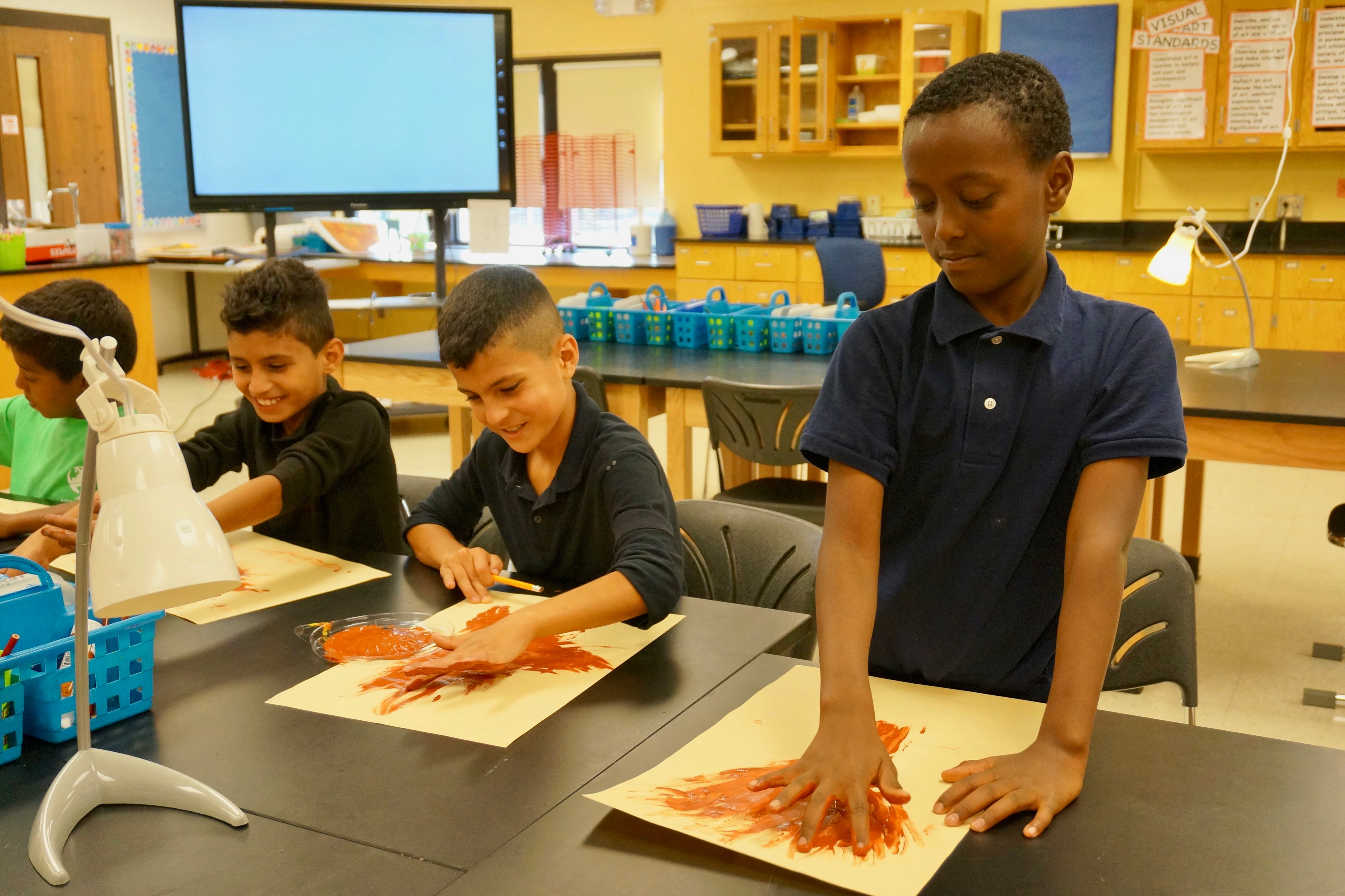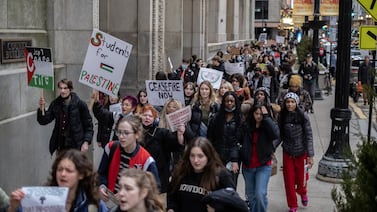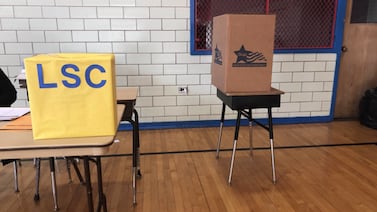The Indianapolis Public Schools board of commissioners unanimously approved a resolution on Tuesday that will allow the district to begin the process of placing a $410 million referendum for capital projects on the May ballot.
The vote came after lengthy pleas from charter school advocates to share more of the potential referendum funding with all charters within IPS boundaries.
The capital referendum question — along with a referendum for new operating costs that the school board is due to consider next week — will help fund the district’s massive reorganization known as Rebuilding Stronger, a plan the district adopted last month to more efficiently run a district that has been losing students to charter schools.
Both ballot questions, if placed on the ballot and passed, would generate over $800 million in new taxes.
But dozens of charter school parents and students packed the board room before the vote and called on the board to share more of the referendum money.
IPS plans on sharing part of potential referendum funding with charters within its innovation network. But IPS Superintendent Aleesia Johnson has said the district will not share referendum funding with independent charters due to concerns about accountability and transparency.
Charter leaders estimate that the current referendum funding plan would create a funding gap of $1,650 per student each year between innovation charter students and students in traditional IPS public schools, and a gap of more than $10,000 between traditional public school students and independent charter students.
“I’m here because you’re actively robbing me of equal opportunities, just as IPS wishes to do to the other scholars that attend my school and many others,” said Elazia Davison, a junior at Believe Circle City High School, an independent charter.
The vote came after parents affiliated with Stand for Children Indiana — which has criticized Rebuilding Stronger for expanding programs such as International Baccalaureate but not the Paramount Schools of Excellence charter program that has high achievement rates for children of color — urged the superintendent to delay any votes on property tax increases.
“These are very difficult economic times. Inflation continues to impact the very families that IPS serves and many residents face a housing crisis due to increased costs,” the 18 parents and community members said in the letter to Johnson. “Whether families own their home or rent, the financial burden from this potential referendum will have a disproportionate impact on low-income households.”
District officials estimate that the two referendum questions combined would mean a $6 monthly tax increase for a resident with a home value of $138,500, which IPS estimates is the median home value within IPS boundaries. The increase would take effect in 2024.
Capital referendum would fund improvements at 23 schools
The $410 million capital referendum would fund facility improvements and new building additions outlined in Rebuilding stronger, including improvements to 23 schools, according to documents officials presented to the school board.
That list of schools includes Arlington Middle School, which will receive one of the largest investments, and George Washington Carver Montessori School 87, which will receive a building addition.
The capital referendum seeks to increase the district’s debt property tax rate by no more than approximately 21 cents per $100 of assessed value. But that increase will largely be canceled out by older debt that the district says will soon be paid off.
The district hopes to keep the overall debt tax rate to around 52 cents per $100 of assessed value, officials have said.
Operating referendum would cover teacher pay, programs
The referendum for the district’s operating budget, meanwhile, would raise $51.7 million per year for eight years, according to board documents. It would cover the cost of expanding specialized programs such as International Baccalaureate or Montessori.
The referendum proposes an operating tax rate of no more than 25 cents for each $100 of assessed value, which will replace the current rate of 19 cents.
The operating referendum would help fund roughly $9 million to expand academic programs such as dual language, Reggio, International Baccalaureate and Montessori programs in each of the next two school years, according to board documents from Oct. 27.
It would also offer roughly $5.6 million to provide elementary schools with staff to enhance the student experience — such as a music teacher and dean — over the next two years, according to the documents. Middle schools would receive roughly $5.7 million.
And roughly $1.6 million each year would fund increased compensation to staff.
The Rebuilding Stronger plan closes six underutilized schools while also expanding various academic programs at its remaining elementary and middle schools to offer attractive educational options that could compete with charter schools.
The district has publicized that the two ballot questions would generate $810 million altogether, although exact figures in board presentations put the number closer to $824 million.
Amelia Pak-Harvey covers Indianapolis and Marion County schools for Chalkbeat Indiana. Contact Amelia at apak-harvey@chalkbeat.org.
Clarification: This story was updated to include clarify the types of parents affiliated with Stand for Children Indiana who wrote a letter to the superintendent, and the Paramount school that they support.








